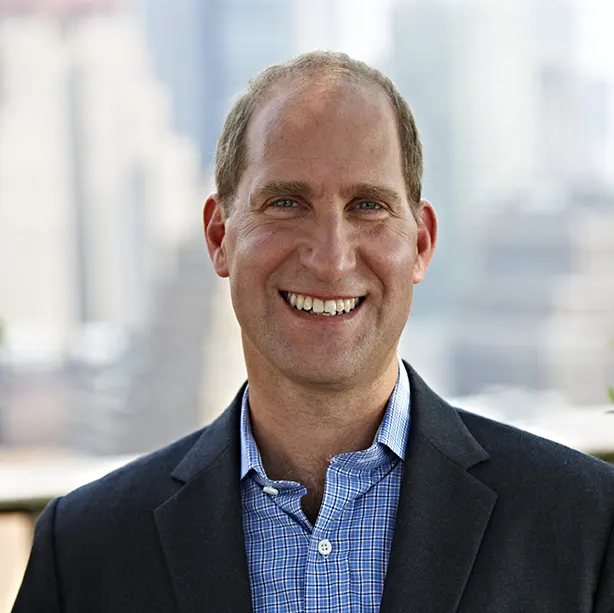Simon Greer and I are excited to share the news that we are partnering on a new editorial project called Face to Face—an ongoing series of essays and articles that explore the spiritual, religious and moral dimensions of social change and the progressive movement. Simon is joining the Independent Media Institute as a writing fellow this fall, bringing a wealth of experience to the table.
Simon is a longtime labor and community organizer and social change leader. He has headed several social justice nonprofits and, for the past four years, has been working closely and intensively with white, working-class Americans to bridge the gap between this constituency and progressive movements. You will find Simon’s work indexed here on IMI’s Face to Face page.
Simon and I recently spoke about the project and thought sharing our conversation would be a great way for readers to get introduced to the topics and approaches he will focus on.
Jan Frel: The concept that we’ve arrived at, which we both see the need for, combines a few missing dimensions that we see in the progressive movement: patience and the understanding that social change requires inclusion and that everybody must a part of it.
Simon Greer: It feels to me at least like the lines are being drawn, either on this side or that side, and I feel that inside of me, as well. There’s a curiosity and a humility required to get past those lines, without which I’m not sure how you actually make the kind of change that progressives talk about wanting to make. So it feels like it’s convenient, if you will. They’re the bad guys, we’re the good guys. They need to change, be more like us, and then we’ll win, right? Does the world really work that way?
We know from our most personal relationships that whenever we approach a disagreement with ‘you’re wrong, I’m right, and if you were more like me, we’d all be happier,’ we don’t get a lot of movement. We actually generate more resistance, and it feels as though progressive movements are losing sight of the curiosity and the humility that could actually serve us better.
Frel: And so the work that you are going to do with us is going to look at the key issues of our times and try to understand them through this framework?
Greer: Exactly. I’ve certainly felt over the last 10 years, and more intensively over the past two, that I’ve started to feel more like I’m a political orphan on some level.
Not that my values have changed, but my sense that, in the way we approach the issues of today, we’ve lost sight of the rest of our fellow Americans and the possibility of what we might do together. We need to bring that perspective back.
Frel: Do you feel that there is also a legacy issue the progressive movement is dealing with in a habit of ignoring the efforts that the religious and spiritual movements of our times have made for social change? And the flip side of the question, are we ruling out the people on the basis that they could go under the label “religious right”?
Greer: Certainly back to the Gore election defeat, there’s been talk among progressives about values voters and so I feel like there’s been an awareness of it. But I have spent the last few years immersed in conservative, white working-class America, and God, family and country are the things that matter to most people. Not just conservatives, but most people. Those are the things they care about, and progressives, in a way, have given up or lost that territory.
So we tend not to speak in faith language, or about strong families, or about being patriotic and loving our country, and if those are the things that most people care about, you start a deficit. Without speaking to these issues, you can’t communicate credibly and inspire people to develop the conviction to take some risks and do things differently as a country; to extend themselves to others with whom they might not have much experience.
I’m just going to add one thing to that: in fairness to progressives in America, this is a global phenomenon. So in England, Germany, Scandinavia, Israel, Australia—in developed market economies across the globe—the left, liberal, labor, social democratic, progressive parties have lost faith with a lot of people.
You would think that, out of global financial collapse, the rising tide would be the progressive one. You would think that’s who would capture the political imagination of working-class people.
But in all those countries, those progressive movements and parties have lost the connection to what you would have thought its base should or could be, especially in the face of the banks fleecing the country. So, wouldn’t the people be with the progressive alternative to that? They aren’t, to put it plainly.
And so it led me to think not just that we’re inadequate as progressives here, but that there’s something missing in the ethos of progressive politics across the planet.
Frel: I observe a prevailing habit of imagining or pretending that there is no spiritual dimension to life when it comes to social change.
Greer: Certainly you see it play out. The advice to progressives is: if you’re going to talk to conservatives or to moderates, people who are likely more religious or have a theology or a moral code, don’t talk about morality. Talk about bread-and-butter issues. That’s the safe territory.
But this approach misunderstands that, for people who live by a moral code, you don’t have bread-and-butter issues and moral issues. You have a moral code through which you understand all the issues. And so if I come to you as a religious person and say, “I want you to put those moral issues aside and let’s talk about bread and butter,” they think, “Well, either your bread-and-butter stuff must not matter because it doesn’t relate to my morality, or you don’t have a moral code. You think that’s an optional thing. For me, it’s the whole thing.”
In essence, we’ve said, “You shouldn’t trust me, because I think morality is flexible and now I want to tell you why you should ignore your moral code to vote on the issues I’m telling you about.” It doesn’t make any sense. You need to operate within the code by which people think they live. Otherwise, they’re not going to take a leap with you.
Visit IMI’s Face to Face project page.
 Jan Frel
Jan Frel
Executive Director
Independent Media Institute
 Simon Greer
Simon Greer
Writing Fellow
Face to Face Project

